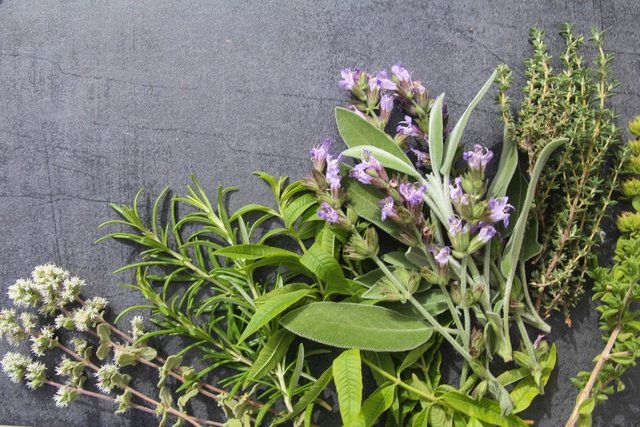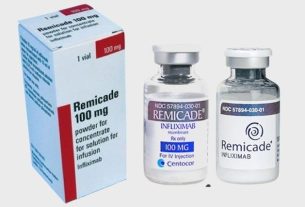Some home remedies for osteoarthritis and arthritis, such as rosemary tea, white willow tea and green tea, have anti-inflammatory properties, helping to alleviate symptoms such as joint pain and swelling in the hands, knees and feet, for example.
Furthermore, mastic compress and arnica oil also have anti-inflammatory and analgesic effects, being indicated to reduce pain and improve joint movement.
Natural remedies for arthritis and osteoarthritis should not replace the treatment prescribed by your doctor, and are only indicated to help relieve pain and inflammation. Therefore, before using these natural remedies it is important to always consult your doctor.

1. Rosemary tea
Rosemary tea has anti-inflammatory properties, helping to fight inflammation and relieving the symptoms of osteoarthritis and arthritis, such as pain and difficulty moving the joints. See all the benefits of rosemary tea.
Ingredients:
- 1 teaspoon of fresh rosemary leaves;
- 250 ml of water.
Preparation mode:
In a pan or kettle, boil the water. After turning off the heat, add the rosemary leaves to the boiling water, cover and let it rest for 5 to 10 minutes. Strain and drink the tea while it is still warm and unsweetened. Drink 3 to 4 cups of tea a day.
This tea should not be consumed by children under 5 years of age, pregnant women and while breastfeeding. People with liver disease should also not consume this tea. People with epilepsy or who use medications, such as anticoagulants, diuretics, lithium and antihypertensives, need to consult their doctor before drinking rosemary tea.
2. Ginger and sesame massage
Ginger essential oil contains cineole, bornal, gingerol and chagoal, bioactive compounds with anti-inflammatory and analgesic properties that relieve joint pain.
Sesame vegetable oil contains sesamol and sesamin, compounds with immunomodulatory and anti-inflammatory activity, reducing inflammation and swelling.
Ingredients:
- 1 tablespoon of sesame vegetable oil;
- 3 drops of ginger essential oil.
Preparation mode:
In a small container, place the ginger essential oil and sesame vegetable oil, mixing well with a spoon or spatula. After washing and drying your skin well, apply the mixture to the area, massaging lightly for 2 minutes. Do this massage 1 to 2 times a day.
This massage cannot be done on pregnant women. Likewise, this massage should be avoided by people with bleeding diseases or who use anticoagulant medications.
3. White willow tea
White willow tea has a powerful anti-inflammatory and analgesic action, helping to relieve joint pain from osteoarthritis and arthritis.
Ingredients:
- 1 cup of water;
- 1 teaspoon of chopped white willow bark.
Preparation mode:
Place all the ingredients in a pan and let it boil for 10 minutes. Leave to cool, strain and drink afterwards. It is recommended to drink up to 2 cups of this tea per day.
This tea is not recommended for children, pregnant or breastfeeding women, and people allergic to aspirin. This tea should be avoided by people with hemorrhagic diseases; asthma attacks caused by aspirin or other non-steroidal anti-inflammatory drugs; gastritis, reflux or ulcers; colitis, diverticulitis or diverticulosis; and severe kidney, liver or heart failure.
It is important to inform your doctor or herbalist about all medications you are using, as this plant can interfere with the effect of several medications and cause serious side effects.
4. Mastic compress
Mastic is a medicinal plant rich in flavonoids, terpenes and saponins, bioactive compounds that help reduce inflammation and swelling in the joints.
Ingredients:
- 20g of mastic peels;
- 1 liter of water.
Preparation mode:
Place the water and mastic peels in a pan and boil for 10 minutes. Leave to cool and strain. After washing and drying your skin well, soak a cotton pad or gauze in mastic tea and apply it to the affected area, leaving it to act for 10 minutes. Do this compress twice a day.
This compress should not be used on children, pregnant women or women who are breastfeeding. Likewise, people with sensitive skin should avoid using mastic compresses.
5. Green tea
Green tea is rich in flavonoids and catechins, which are bioactive compounds that balance the action of the immune system, reducing the production of inflammatory substances, thus helping to reduce joint pain and swelling.
Ingredients:
- 1 teaspoon of green tea leaves or 1 green tea bag;
- 1 cup of water.
Preparation mode:
Boil water in a pan or kettle. Turn off the heat and add the green tea leaves or sachet. Cover the pan or kettle and let it rest for 10 minutes. Strain and drink 2 to 4 cups a day.
Green tea is not recommended during pregnancy and breastfeeding, nor is it recommended for children, people with difficulty sleeping, thyroid disorders, kidney or liver problems, anemia, gastric ulcers and gastritis.
Furthermore, green tea can interfere with the action of some medications such as anticoagulants, antihypertensives and hypocholesterolemic agents and, therefore, in these cases, the consumption of green tea should only be done under the guidance of a doctor.
6. Devil’s claw tea
Devil’s claw, also known as harpago or harpagofito, is a plant rich in flavonoids, herpangina and harpago quinone, bioactive compounds with anti-inflammatory and analgesic properties, which help relieve pain and swelling, in addition to improving mobility. and reduce joint stiffness.
Ingredients:
- 1 teaspoon of devil’s claw roots;
- 200 mL of water.
Preparation mode:
In a pan or kettle, place the water and devil’s claw roots and boil for 20 minutes. Cover, wait for it to cool, strain and drink 2 to 3 cups a day.
This tea should not be consumed by children, pregnant or breastfeeding women. This tea should also not be used by people with stomach or intestinal ulcers, gallstones and gastritis.
Furthermore, devil’s claw tea should also not be used by people with circulatory or heart problems, or who use anticoagulant medications, such as warfarin, as it may increase the risk of bleeding.
7. Arnica oil
Arnica oil is rich in helenalin, a bioactive compound that reduces the production of inflammatory substances, therefore helping to reduce stiffness, improve movement and relieve joint pain.
Ingredients:
- 10 g of dried arnica flowers;
- 100 mL of olive oil, almond or jojoba oil.
Preparation mode:
Place the arnica flowers and oil in a clean, dry glass jar with a lid. Mix the ingredients well, cover the bottle and shake well for 1 minute. Store the bottle in a cool place, away from light, for 40 days. After this period, strain the oil to remove the arnica flowers and store the oil in a clean, dry bottle with a lid.
After washing and drying your skin well, apply arnica oil, massaging lightly for 2 minutes. It is recommended to use this oil 2 to 3 times a day.
Arnica oil should not be used by children under 12 years of age, people allergic to this plant and pregnant or breastfeeding women. This plant should also not be applied to skin with open or bleeding wounds, or to the eyes.
8. Avocado Kernel Extract
Avocado seed extract helps combat the pain of arthritis and osteoarthritis, because it contains flavonoids, saponins and tannins, bioactive compounds that reduce the concentrations of inflammatory substances that cause pain and swelling. Discover all the properties of the avocado seed.
Ingredients:
- 3 avocado seeds;
- 1 liter of grain alcohol.
Preparation mode:
Let the avocado pits dry in the sun, covered with a thin cloth, for 5 days. Afterwards, grate the avocado seeds with a kitchen grater, placing them in a glass container along with the alcohol and covering. Keep the bottle closed and protected from light for 3 days, always stirring the contents with a spoon, once a day.
After the rest period, strain the alcoholic extract. To use, simply wash and dry your skin well, wet gauze or cotton with the extract and apply it to the affected joint, leaving it to act for 15 to 20 minutes.

Sign up for our newsletter and stay up to date with exclusive news
that can transform your routine!
Warning: Undefined array key "title" in /home/storelat/public_html/wp-content/plugins/link-whisper-premium/templates/frontend/related-posts.php on line 12
Warning: Undefined array key "title_tag" in /home/storelat/public_html/wp-content/plugins/link-whisper-premium/templates/frontend/related-posts.php on line 13



